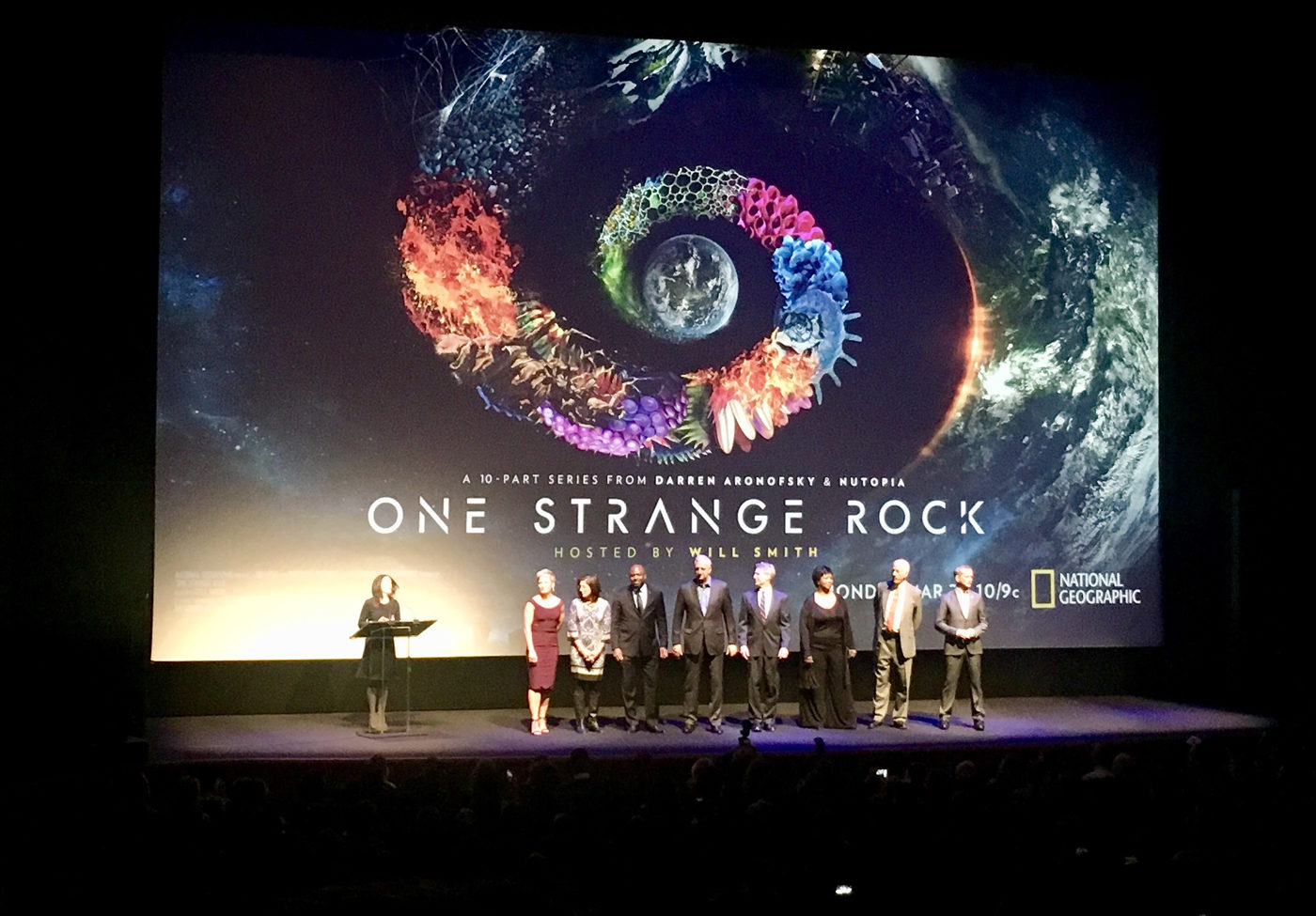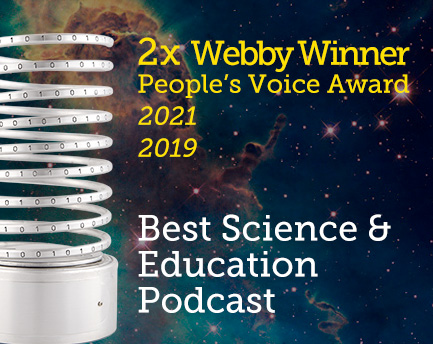April 2, 2018 2:22 pm
Nat Geo’s “One Strange Rock” Reminds Humans That There is No Place Like Home
Today’s guest post is by Natalia Reagan, primatologist, anthropologist and StarTalk All-Stars host.
Nat Geo’s latest groundbreaking series, One Strange Rock, has landed. Hosted by the always engaging Will Smith and produced by critically acclaimed director Darren Aronofsky, One Strange Rock takes viewers on a wild ride through some of the farthest reaches of Earth, and uncovers the myriad of reasons Earth is best described as the ultimate “Goldilocks” planet – not too hot or too cold – just right for humans to exist. Earth’s atmosphere has just the right makeup to allow animals not only to survive, but to thrive. Aronofsky uses a mixture of visually stunning footage of Earth’s natural wonders and personal stories from the few men and women who’ve had the unique opportunity to leave Earth’s atmosphere and venture into space. From space, astronauts have a bird’s eye view of their “home.” This new perspective often leaves them changed, and the cognitive shift they experience by seeing Earth from afar is called the “overview effect.” One Strange Rock seeks to give audiences a comparable experience and a new appreciation for our shared home, planet Earth.

SHOWN: Astronauts Peggy Whitson, Nicole Stott, Leland Melvin, Michael Massimino, Mae Jemison, Jeffrey Hoffman, and Chris Hadfield stand before the audience at the March 14, 2018 New York premiere of “One Strange Rock.” Credit: Natalia Reagan.
The series begins with “Gasp,” an episode focusing on the most natural thing many organisms do – breathe. Since we breathe without having to think about it, it’s easy to take breathing for granted. But not for astronaut Chris Hadfield. Hadfield explains how contamination in his space suit threatened his ability to see while on a space walk and the only way to fix the problem was to open up a valve in his suit and let out some of his precious oxygen. He recounts his fear and reflects on the new appreciation he has for, well, breathing. The episode also explores the Amazon rainforest and dispels the myth that the oxygen produced from the expansive jungle provides the bulk of humanity’s oxygen. False. The oxygen from the Amazon never leaves the Amazon as it’s completely consumed by all the countless animals that call that forest home.
The idea of “home” is a primary theme throughout One Strange Rock. From leaving “home,” to seeing “home” from miles away, to becoming “homesick,” to that bittersweet moment astronauts leave the final frontier of space and re-enter Earth’s atmosphere (the footage of their re-entry was a personal favorite – the precision and technology to break through the atmosphere and land safely is overwhelming), to the emotional “homecoming,” One Strange Rock drives home the point that there really is no place like “home.”
Astronaut Nicole Stott spent 104 days in space living aboard the International Space Station. When asked about her experience of leaving her Earthly home for the first time, Stott said, “It’s like when I go in a room – I’m looking for someone familiar to me. I wanted to see Florida. I grew up in Florida. I considered Florida my home. I wanted to see Florida from space.” However, Stott quickly realized that Florida was part of a bigger picture. “The thing I left space with is…I live on a planet. We live on a planet. And it is blanketed by this thin fragile atmosphere and that’s the only natural border that exists around us…And we’re all Earthlings. And I when I went back to station the second time, I felt like the station had became part of Earth too. The space station became part of this whole ecosystem that I know is home.”
For those space groupies out there, the series features interviews and stories from astronauts Leland Melvin, Chris Hadfield, Jeffrey Hoffman, Mae Jemison, Nicole Stott, Jerry Linenger, Peggy Whitson and Michael Massimino. Peggy Whitson’s parents also make an endearing cameo discussing what it really means to come “home” – not just to Earth, but to family.
Host Will Smith excels at walking the line between “engaging host” and “curious layperson.” Science communication is a challenging balance of explaining complex concepts while remaining entertaining, and Smith provides a great blend. And, of course he has the help of some seasoned astronauts.
Future episodes include “Storm” and “Shield” which continue to blend jaw-dropping visuals with personal stories from those who have experienced “overview effect.” After watching the first few episodes, it’s clear that this series could have easily been titled One Strange Species, given Homo sapiens’ unique way of interacting, manipulating, and thriving on this special planet.
When I asked Aronofsky (who I fittingly spoke to on Pi day) what he wants the audience to take away from the series, he had this to say, “For some reason we can appreciate the pocketwatch handed down from our grandfather and there is tremendous complexity there. We take care of it, we make sure it goes to the right child… but we don’t see the Earth that way. There is such a disconnect from our home and all of these gifts that our mother has given us. So I think showing the beautiful clockwork inside – all the gears, all the systems, all the pistons, and how it all works – and how it’s much more complicated than any human could conceive of…it’s a way to maybe understand that our ancestors have passed [Earth] down to us and it’s our turn to take care of it and make sure it stays intact forever.”
Let’s hope he’s right. Because, after all, there is no place like home.
The series One Strange Rock airs on Nat Geo Mondays at 10/9 central.
You can follow Natalia Reagan on Twitter @natalia13reagan.
Watch her wacky science comedy videos on her YouTube Channel: www.youtube.com/nataliareagan.
Listen to her All-Star podcasts: http://startalkmedia.com/bio/natalia-reagan/.
Get the most out of StarTalk!
Ad-Free Audio Downloads
Priority Cosmic Queries
Patreon Exclusive AMAs
Signed Books from Neil
Live Streams with Neil
Learn the Meaning of Life
...and much more

 Become a Patron
Become a Patron

